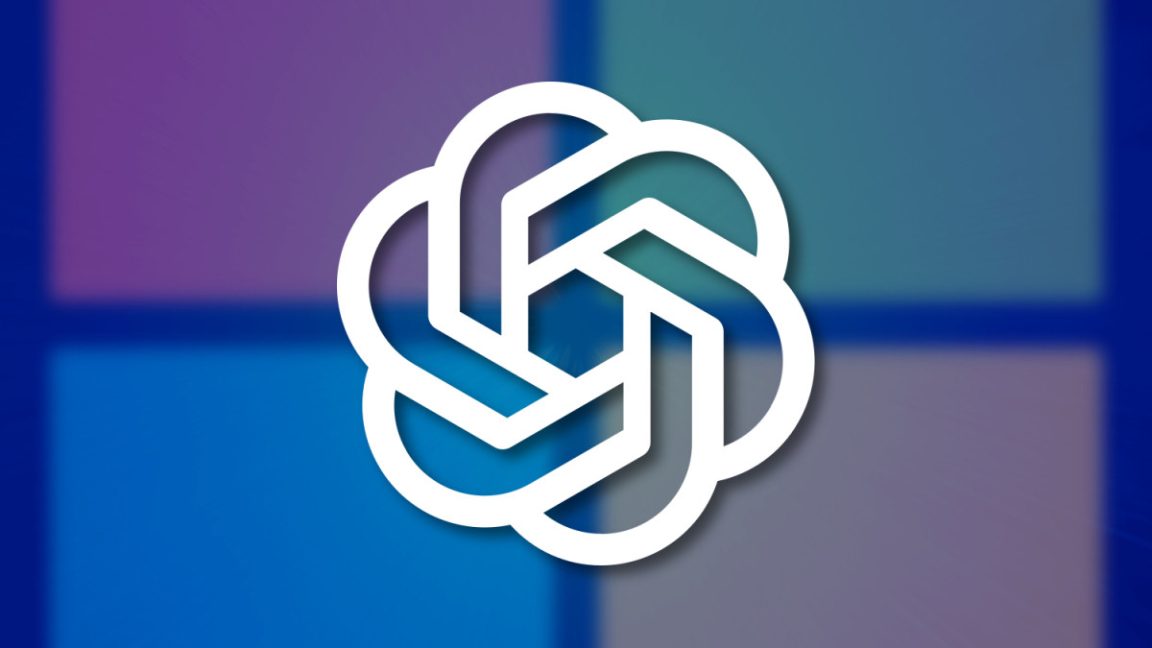
Credit: Benj Edwards / OpenAI / Microsoft
On Thursday, OpenAI and Microsoft announced they have signed a non-binding agreement to revise their partnership, marking the latest development in a relationship that has grown increasingly complex as both companies compete for customers in the AI market and seek new partnerships for growing infrastructure needs.
"Microsoft and OpenAI have signed a non-binding memorandum of understanding (MOU) for the next phase of our partnership," the companies wrote in a joint statement. "We are actively working to finalize contractual terms in a definitive agreement. Together, we remain focused on delivering the best AI tools for everyone, grounded in our shared commitment to safety."
The announcement comes as OpenAI seeks to restructure from a nonprofit to a for-profit entity, a transition that requires Microsoft's approval, as the company is OpenAI's largest investor with more than $13 billion committed since 2019.
The partnership has shown increasing strain as OpenAI has grown from a research lab into a company valued at $500 billion. Both companies now compete for customers, and OpenAI seeks more compute capacity than Microsoft can provide. The relationship has also faced complications over contract terms, including provisions that would limit Microsoft's access to OpenAI technology once the company reaches so-called AGI (artificial general intelligence)—a nebulous milestone both companies now economically define as AI systems capable of generating at least $100 billion in profit.
In May, OpenAI abandoned its original plan to fully convert to a for-profit company after mounting pressure from former employees, regulators, and critics, including Elon Musk. Musk has sued to block the conversion, arguing it betrays OpenAI's founding mission as a nonprofit dedicated to benefiting humanity.
The company instead announced a modified approach where the nonprofit board would retain control while converting its for-profit subsidiary into a public benefit corporation. Under this revised structure, the nonprofit would become the largest shareholder with a stake worth more than $100 billion, according to OpenAI chairman Bret Taylor's announcement in May. Thursday's MOU with Microsoft suggests the companies are working to align on this modified restructuring plan.
High stakes tied to restructuring
The restructuring still requires approval from attorneys general in California and Delaware, who continue to scrutinize the proposed conversion. A coalition of charitable institutions has also called on regulators to halt the plan.
Microsoft stated in a January blog post that key elements of the partnership remain in place through 2030, including access to OpenAI's intellectual property, revenue-sharing arrangements, and exclusivity on OpenAI's APIs. That agreement introduced a right of first refusal model for compute capacity, replacing Microsoft's previous exclusivity as OpenAI's sole cloud provider.
The rapidly changing relationship between two formerly steadfast partners follows the AI industry's explosive growth from experimental research labs to multi-hundred-billion-dollar infrastructure investments over the past six years since the two companies first made an investment deal. OpenAI has diversified its infrastructure partnerships, including participation in the $500 billion Stargate Project with Oracle and SoftBank, while Microsoft has expanded Azure to host competing models from Meta, xAI, and DeepSeek.
Despite efforts by both companies to reduce mutual dependence, their fortunes remain deeply intertwined. Microsoft disclosed in recent earnings that Azure has become a $75 billion annual business, with significant contributions from OpenAI-related services.

-
 C114 Communication Network
C114 Communication Network -
 Communication Home
Communication Home


